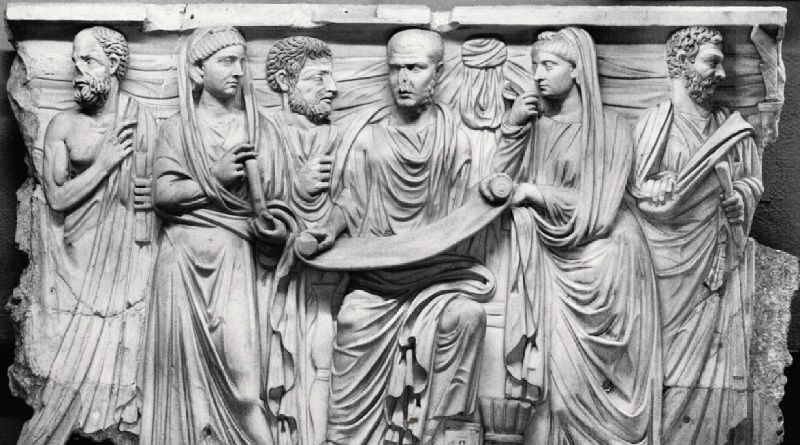The Sophists: Truth is Relative
“Man is the measure of all things: both of things that are, and of things that are not,” says Protagoras in Plato’s book aptly called Protagoras. You and I the source of value, not some deity or some cosmic, unchanging moral set of laws.
The Sophists were a disparate number of philosophers lumped together for one reason: believing that truth is relative. Other than that, some argued in favour of democracy. Others, that ‘might is right’ (tyranny).
They were great orators, polished in the art of public speaking, teacher of rhetoric, the art of effective and persuasive speaking and writing, using impressive words and an emotional performance, but not always with total commitment to Truth with a capital T. Anything can be true, if sold the right way, including shady moral principles.
Why? Because there is no universal, absolute set of moral principles. Knowledge is relative to the knower. The measure of truth, indeed, of all things, is Man. People. Humankind. Homo mensura – Man measures.
It’s both a liberating and a terrifying prospect. Murder, robbery, rape, and war are right or wrong depending on how well we’re able to convince people; sometimes, tugging on people’s emotions works wonders compared to making good, logical arguments. It boils down to the persuasive artistry of the speaker. Protagoras himself would claim he’s able to “make the worse case better”, or how to make the weaker argument appear the stronger. He could pretend to be saying the truth and manipulate people into agreeing. Think politicians.
Plato would protest strongly against claims that Socrates was himself a sophist: unlike them, he took no fees and his devotion to the Truth was beyond questioning. Alfred Norton Whitehead famously said that philosophical tradition is a “series of footnotes to Plato.” In some sense, it would take many long centuries for the sophists to be partially rehabilitated. In the 20th century, postmodern thinkers such as Derrida, Foucault, and Lyotard would take issue with the direction set by Plato and followed by countless others: that of the pursuit of some “objective Truth.” The sophists, dismissed and marginalised by history, would provide a much-needed alternative vision.




